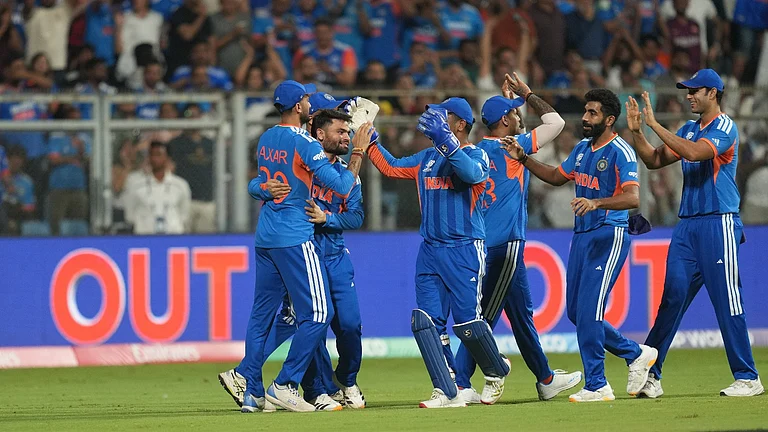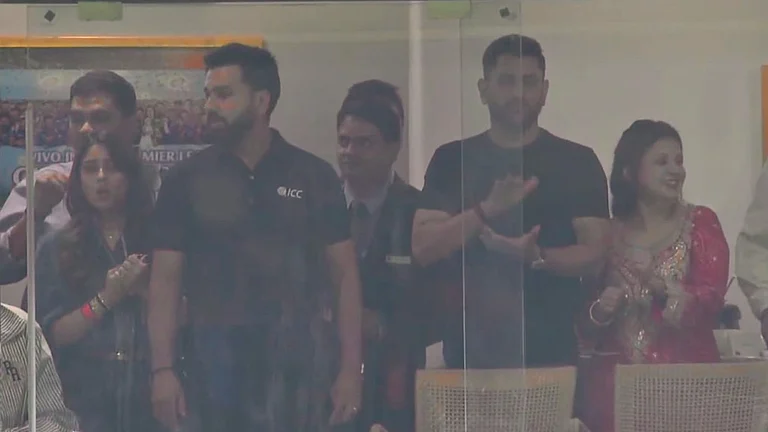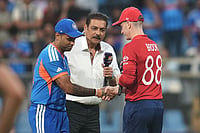Barring the CCTV cameras and a new clerk, not much has changed at Kurla based Shahid Azmi' office In Mumbai. Roy Black's quote is still affixed to the wall, and his brother Khalid Azmi replaces him on his chair. The clerk Inder Singh is replaced by someone else. The Roy Black quote reads, "By showing me injustice, he taught me to love justice. By teaching me what pain and humiliation were all about, he awakened my heart to mercy. Through these hardships, I learned hard lessons. Fight against prejudice, battle the oppressors, support the underdog."
Shahid Azmi was so moved by these comments by American lawyer Roy Black that, after being falsely accused of terrorism and spending years in prison, he chose to follow in Black's footsteps and become a lawyer soon after his acquittal.
On February 11, 2010, unidentified persons assassinated Shahid at his office in Kurla, Mumbai. The assailants had disguised themselves as potential clients. Twelve years later, the family still awaits justice as no one is yet convicted for his murder.
Ironically, obtaining justice for Shahid has taken considerably longer than for others he stood for. His case is still being handled in Mumbai courts twelve years after he died. Inder Singh, an assistant in Shahid's Kurla office, is currently being produced in court as a murder witness. When bullets were pumped into Shahid's body, Singh was in the office.
Four men were charged with murder and criminal conspiracy in August of 2017. Five persons were initially charged, but gangster Santosh Shetty's name was dropped later. Two of the accused, Vinod Pichare and Pintu Beagle, have been granted bail in the case, while the other two, Devendra Jagtap and Hasmukh Solanki, are still in jail. Their bail applications were rejected by the Supreme Court in 2018.
"I have faith in the judiciary and hope that we will get justice, but the fact that it has already been 12 years since he was killed and no one is convicted yet make us doubt the process," his mother Rehana tells.
The lawyer who had seen the system closely and attended court hearings as an undertrial before wearing the black robe himself had a short life with many twists and turns, including several disputed occurrences, as shown in Hansal Mehta's film Shahid. Azmi travelled to Kashmir after being disturbed by the communal riots in 1993, intending to take up arms against the state. - However, his family denies any knowledge of this. He later returned to Mumbai after becoming disillusioned with the movement, only to be imprisoned later on charges of planning to kill politicians.
He was accused of terrorism and charged under TADA (the Terrorist and Disruptive Activities Prevention Act). He served five years in prison before returning to society with determination to fight legally for others who he thought were 'innocents' charged under anti-terror laws.
Before his assassination, Azmi had gotten the acquittals of more than a dozen young people who had been imprisoned on spurious charges, and he was representing another 50 people under various terror cases. Among those included the likes of Fahim Ansari, incarcerated on charges of drawing maps for the 26/11 terror attacks. Azmi's arguments helped secure Ansari's acquittal from the case months after his death; the Supreme Court upheld the order later.
"Shahid Azmi was said to have become one of the fraternity's most articulate criminal lawyers in a career that lasted only seven years. His efforts earned him legal counsel for various organisations that assist the families of persons wrongly accused of terrorism," recalls his brother Khalid.
Rehana, Shahid Azmi's mother, was severely affected not only by her son's death but also by his tumultuous existence spanning 32 years. She is now a campaigner for justice herself. Recalling her own life, full of turbulence, she said, "My husband died right after I got married; I was just 27 then and devasted and did not know how to raise my kids. My father, who lived in Saudi Arabia, did not return to ensure that I raised my kids and provided for their education and later died in a different country. It was very challenging for me, but I remind myself that God also tests those who are honest and strive for justice," she said.
"Years later, Shahid was accused of terrorism, arrested, and served five years in jail until he was not proven guilty. It added to our misery. I had to deal with all this alone", she adds.
Commenting on Shahid Azmi's death, Rehana insists that it was a significant loss for her, their family, and those he represented in a court of law.
"It was a big loss for me." But now, I'm also proud to be his mother. What could be more fulfilling for me than having a 'legend' as a son? Shahid's life was legendary in every way. The way he stood up in courts for 'innocents', did not think of money and always remained sympathetic to the poor and backward. The last phase of his life was dedicated to them. I feel overwhelmed by the way people remember him even now, " She exclaimed.
Shahid's brother Khalid Azmi also took law while Shahid was alive. However, he entered into legal practice after his brother's assassination. Currently, he works from the same Kurla office where Shahid worked.
"Shahid knew his time was running out, and it showed in every conversation and piece of advice he gave us. He had begun to press me to pursue a legal education; after him, he would point out that someone else would have to lead the charge. It seemed as if he was aware that death was approaching. And he had reasons to believe that," Khalid Azmi told The Outlook.
"Shahid's final days of fighting for Fahim Ansari were crucial. Over the phone, he was constantly threatened. Many of his friends and family members pushed him to drop the case. On the other hand, Shahid Bhai was of different mettle. He always kept himself in others' shoes and understood their plight.; he knew why he was in this profession. So after his death, I took forward Fahims case along with a friend and got him acquitted of all charges," Khalid adds.
Faheem Ansari, 49, walked out of Bareilly Central Jail in 2019 after being acquitted nine years ago for the 26/11 terror attacks. But he could not leave prison until he got acquitted of all other charges against him.
Soon after his acquittal, Ansari remarked that one major regret he has is that the two men he most wanted to meet after his release are no longer living.
"I wanted to meet two men: lawyer Shahid Azmi, who represented me in the 26/11 case, and ATS Chief Hemant Karkare, who told officials that I was innocent." But, sadly, both have been killed by terrorist gunfire," Ansari had told the media.
Shahid's friends and family members believe that his contribution to society and the cause of justice has pursued many young people to take up law as a profession, and Khalid was one of them.
"Our brother is no longer with us, but his voice and principles live on, even after twelve years of martyrdom. He has influenced many young people to pursue careers in law. His contribution was not only in defending innocent people but also in encouraging people towards the idea of justice," Khalid claims.
"After Shahid's death others did not favour Khalid joining the profession and practising from the same office, but I insisted that Shahid's legacy continue. In pursuit of justice, if I have sacrificed one son, I am ready for more." Rehana asserts.






















